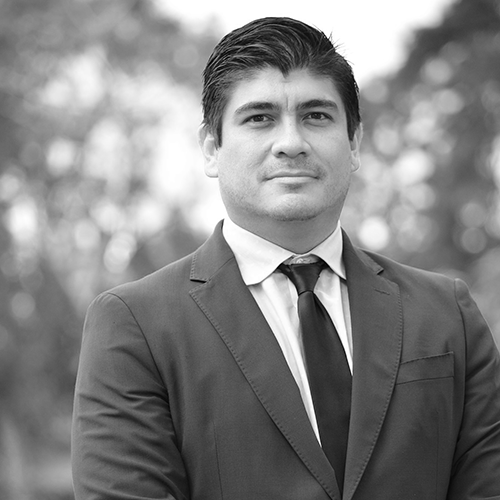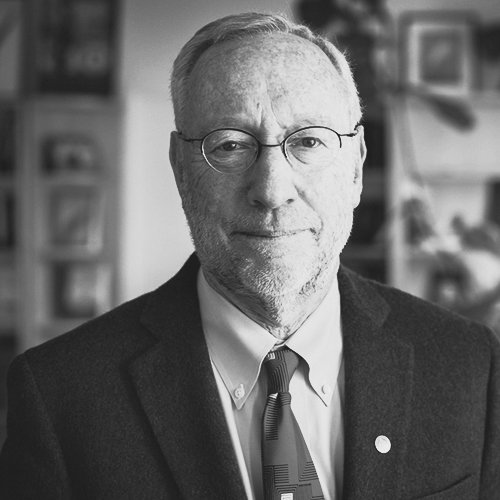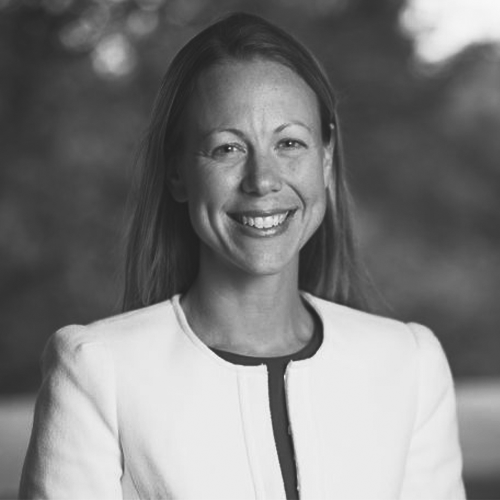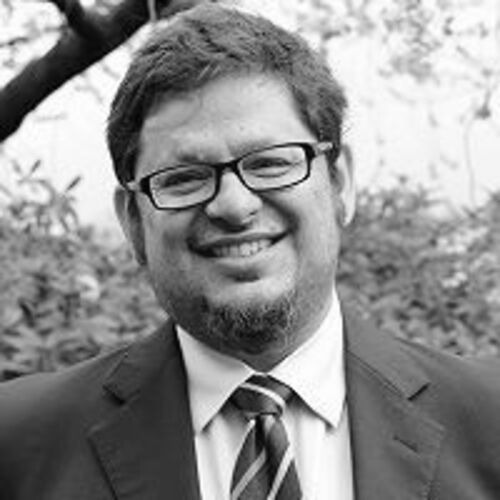Carlos Alvarado Quesada was Costa Rica’s 48th president, serving from 2018 until 2022. Professor Alvarado was Costa Rica’s youngest president in a century, taking office at age 38. Representing the Citizens’ Action Party (PAC), he previously served as Minister of Labor and Social Security. Professor Alvarado received the 2022 Planetary Leadership Award from the National Geographic Society for his commitment and action to protect the ocean. He accepted on behalf of his country the 2019 Champion of the Earth Award, the United Nations’ highest environmental honor. A writer and political scientist, Professor Alvarado is currently Professor of Practice of Diplomacy at Tufts University’s Fletcher School in Massachusetts.
Event Overview
Costa Rica is one of the most biodiverse spots on the planet, with more than one-quarter of the nation’s land protected in parks and preserves. As Costa Rica’s leader from 2018 to 2022, Professor Alvarado proposed a challenge for his country and the world: to make Costa Rica a decarbonized nation by 2050.
During his visit to Cornell, Professor Alvarado will explore some of the questions that guided his administration: What roles do democracy and governance play in shaping environmental policies at the local, national, and global levels? And how can we meet — equitably and democratically — the basic needs of the world’s ever-growing human population without sacrificing the health of the planet and its other inhabitants?
The Bartels World Affairs Lecture is a signature event of the Mario Einaudi Center for International Studies. Part of Einaudi's work on democratic threats and resilience, this year’s lecture is cosponsored by Einaudi’s Latin American and Caribbean Studies Program. The lecture and related events are made possible by the generosity of Henry E. Bartels ’48 and Nancy Horton Bartels ’48.
What You'll Learn
- The relationship between sustainability and democracy around the world
- How Costa Rica set a goal to be a decarbonized nation by 2050
- What steps governments and citizens can take in fighting for democracy and the planet
- How we think about the relationship among justice, equity, and citizen participation in democratic governance and sustainable economic development for national and planetary well-being
Speakers
Michael I. Kotlikoff, Professor of Molecular Physiology, became the 16th Provost of Cornell on August 1, 2015. As the university’s Chief Academic Officer, Chief Budgeting Officer, and First Deputy Officer to the President, Dr. Kotlikoff works to enhance the university’s excellence in teaching, scholarship, and outreach. His signature initiative, Radical Collaboration, recruits faculty and supports infrastructure in seven key multidisciplinary areas: nanoscale science and microsystems engineering; genome biology; data science; sustainability; digital agriculture; infection biology; and the critical inquiry into values, imagination, and culture (CIVIC). Dr. Kotlikoff was previously the Austin O. Hooey Dean of Veterinary Medicine at Cornell, where he enhanced programs in education, animal healthcare, and research, and launched an $87 million capital project to upgrade infrastructure and teaching facilities, thus enabling an increase in the pre-clinical class size. His research laboratory, continuously funded by the National Institutes of Health for over 30 years, is internationally recognized in the area of cardiovascular biology and heart repair.
Rachel Beatty Riedl is the Director of Mario Einaudi Center for International Studies as well as the Einaudi Center’s John S. Knight Professor of International Studies and a professor in the Department of Government and Cornell Jeb E. Brooks School of Public Policy. Professor Riedl’s research interests include institutional development in new democracies, local governance and decentralization, and authoritarian regime legacies in Africa. Her most recent book, “From Pews to Politics: Religious Sermons and Political Participation in Africa,” coauthored with Gwyneth McClendon, was published in September 2019. “Authoritarian Origins of Democratic Party Systems in Africa” (2014), her previous book, won the African Politics Best Book award. Professor Riedl also cohosts the Ufahamu Africa podcast about life and politics on the African continent. Most recently, Professor Riedl was a fellow at the Nantes Institute for Advanced Study and a Fulbright scholar. Previously, she was director of the Program of African Studies and an associate professor in the Department of Political Science at Northwestern University.
Mario Herrero is a professor of sustainable food systems and global change in the Department of Global Development. He is also a Cornell Atkinson Scholar, and a Nancy and Peter Meinig Family Investigator in the Life Sciences. His research focuses on increasing the sustainability of food systems for the benefit of humans and ecosystems. He works in the areas of food systems and the environment, climate mitigation and adaptation, livestock systems, true cost of food, sustainability metrics, and healthy and sustainable diets. He has played senior roles in many global initiatives on food and the environment (IPCC, UN Food Systems Summit, AgMip, etc). He is currently a Coordinating Lead Author of the forthcoming IPBES-Nexus Report and a Commissioner and Executive Committee member of the EAT-Lancet 2.0 study. Mario is a highly-cited researcher according to the Web of Science, and is in the top 10 of Reuters list of most influential climate change scientists. He obtained his postgraduate degrees from the University of Edinburgh in Scotland.

Carlos Alvarado Quesada was Costa Rica’s 48th president, serving from 2018 until 2022. Professor Alvarado was Costa Rica’s youngest president in a century, taking office at age 38. Representing the Citizens’ Action Party (PAC), he previously served as Minister of Labor and Social Security. Professor Alvarado received the 2022 Planetary Leadership Award from the National Geographic Society for his commitment and action to protect the ocean. He accepted on behalf of his country the 2019 Champion of the Earth Award, the United Nations’ highest environmental honor. A writer and political scientist, Professor Alvarado is currently Professor of Practice of Diplomacy at Tufts University’s Fletcher School in Massachusetts.

Michael I. Kotlikoff, Professor of Molecular Physiology, became the 16th Provost of Cornell on August 1, 2015. As the university’s Chief Academic Officer, Chief Budgeting Officer, and First Deputy Officer to the President, Dr. Kotlikoff works to enhance the university’s excellence in teaching, scholarship, and outreach. His signature initiative, Radical Collaboration, recruits faculty and supports infrastructure in seven key multidisciplinary areas: nanoscale science and microsystems engineering; genome biology; data science; sustainability; digital agriculture; infection biology; and the critical inquiry into values, imagination, and culture (CIVIC). Dr. Kotlikoff was previously the Austin O. Hooey Dean of Veterinary Medicine at Cornell, where he enhanced programs in education, animal healthcare, and research, and launched an $87 million capital project to upgrade infrastructure and teaching facilities, thus enabling an increase in the pre-clinical class size. His research laboratory, continuously funded by the National Institutes of Health for over 30 years, is internationally recognized in the area of cardiovascular biology and heart repair.

Rachel Beatty Riedl is the Director of Mario Einaudi Center for International Studies as well as the Einaudi Center’s John S. Knight Professor of International Studies and a professor in the Department of Government and Cornell Jeb E. Brooks School of Public Policy. Professor Riedl’s research interests include institutional development in new democracies, local governance and decentralization, and authoritarian regime legacies in Africa. Her most recent book, “From Pews to Politics: Religious Sermons and Political Participation in Africa,” coauthored with Gwyneth McClendon, was published in September 2019. “Authoritarian Origins of Democratic Party Systems in Africa” (2014), her previous book, won the African Politics Best Book award. Professor Riedl also cohosts the Ufahamu Africa podcast about life and politics on the African continent. Most recently, Professor Riedl was a fellow at the Nantes Institute for Advanced Study and a Fulbright scholar. Previously, she was director of the Program of African Studies and an associate professor in the Department of Political Science at Northwestern University.

Mario Herrero is a professor of sustainable food systems and global change in the Department of Global Development. He is also a Cornell Atkinson Scholar, and a Nancy and Peter Meinig Family Investigator in the Life Sciences. His research focuses on increasing the sustainability of food systems for the benefit of humans and ecosystems. He works in the areas of food systems and the environment, climate mitigation and adaptation, livestock systems, true cost of food, sustainability metrics, and healthy and sustainable diets. He has played senior roles in many global initiatives on food and the environment (IPCC, UN Food Systems Summit, AgMip, etc). He is currently a Coordinating Lead Author of the forthcoming IPBES-Nexus Report and a Commissioner and Executive Committee member of the EAT-Lancet 2.0 study. Mario is a highly-cited researcher according to the Web of Science, and is in the top 10 of Reuters list of most influential climate change scientists. He obtained his postgraduate degrees from the University of Edinburgh in Scotland.
- View slide #1
- View slide #2
- View slide #3
- View slide #4
View Keynote by completing the form below.
You're Registered!
https://ecornell.cornell.edu/keynotes/view/K032223/
Add to Calendar 6:00 PM - 7:30 PM EDT
Costa Rica is one of the most biodiverse spots on the planet, with more than one-quarter of the nation’s land protected in parks and preserves. As Costa Rica’s leader from 2018 to 2022, Professor Alvarado proposed a challenge for his country and the world: to make Costa Rica a decarbonized nation by 2050.
During his visit to Cornell, Professor Alvarado will explore some of the questions that guided his administration: What roles do democracy and governance play in shaping environmental policies at the local, national, and global levels? And how can we meet — equitably and democratically — the basic needs of the world’s ever-growing human population without sacrificing the health of the planet and its other inhabitants?
The Bartels World Affairs Lecture is a signature event of the Mario Einaudi Center for International Studies. Part of Einaudi's work on democratic threats and resilience, this year’s lecture is cosponsored by Einaudi’s Latin American and Caribbean Studies Program. The lecture and related events are made possible by the generosity of Henry E. Bartels ’48 and Nancy Horton Bartels ’48.https://ecornell.cornell.edu/keynotes/view/K032223/primaryAmerica/New_YorkeCornell
